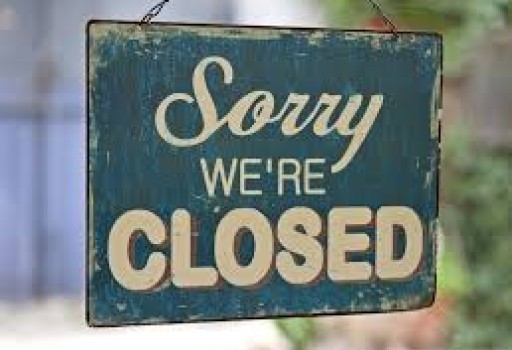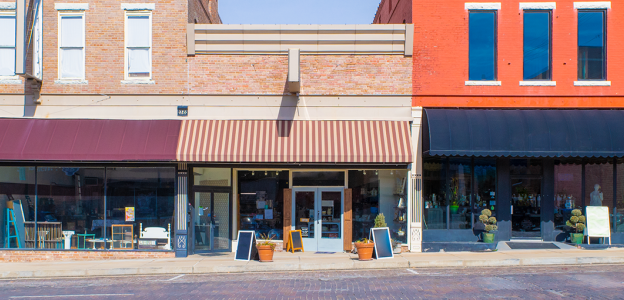08 April 2020
Covid-19 - Why Does My Business Have To Close And Will My Rent Be Reduced?
Authors

Non-essential businesses and rent reduction provisions in leases explained.
You may have asked these questions after the Alert Level 4 was announced by the Government:
Why does my business have to close?
Are rent reduction provisions in my lease triggered (and how do they apply)?
Businesses across New Zealand closed their premises on the basis of the announcements made by the Prime Minister and instructions on the Government’s website: covid19.govt.nz.
In response to the COVID-19 outbreak, the Ministry of Health issued a written Health Act order to take effect from 11.59pm Wednesday 25 March 2020. [1]
The order states “I [the Director-General of Health] require to be closed, until further notice, all premises within all districts of New Zealand except those listed in the Appendix to this order”.
Let's initially look at two issues. First, the basis for that Health Act order. Second, the exceptions listed in the order. We can then look at how the closure order may trigger a rent reduction provision in a lease.
Basis for the Health Act order
The Health Act 1956 gives the Ministry of Health[2] special powers for the purpose of preventing the outbreak or spread of any infectious disease.[3]
Those special powers can be exercised in three different circumstances. First, if authorised by the Minister of Health. Second, if a state of emergency has been declared. Third, if an epidemic notice is in force. In other words, in order to exercise the special powers, one or more of those empowering events has to occur.
The Government covered its bases and both issued an epidemic notice on 23 March 2020[4] and declared a state of national emergency on 25 March 2020.[5]
Included in the special powers is the ability to make a closure order requiring all premises within a health district to be closed for a fixed period or until a further order is made.[6]
“Premises” include any commercial premises, private premises, vehicle, ship or aircraft.
A closure order can apply to premises of any kind or description set out in the order, but cannot apply to premises:
Used solely as a dwellinghouse[7]; or
Within parliamentary precincts[8]; or
Whose principal use is as a courtroom, judge’s chambers or a court registry; or
That form part of a prison.[9]
Exceptions to the Health Act order
There are a number of exceptions that can be sorted into two categories.
First, those exceptions which are already present in the legislation and referred to above (dwellinghouses, parliamentary precincts, court related and prisons).
Second, those exceptions which are specifically created by the order. There are two of these exceptions:
Any vehicle, ship or aircraft, or any premises that need to remain open to provide access to that vehicle, ship or aircraft. As mentioned above, “premises” in the legislation includes any vehicle, ship or aircraft. The closure order excludes those things from the order and allows certain related premises, such as airports and ports, to remain open.
Any premises necessary for the performance or delivery of “essential businesses”. These are defined as businesses that are essential to the provision of the necessities of life and those businesses that support them, as described on the Essential Services list on the covid19.govt.nz internet site maintained by the Government.
What is an Essential Business?
The Essential Services list issued by the Government has been a moving target, more or less updated (or attempted to be clarified) every day since 23 March 2020.
The list can now be found on the Government's Covid-19 website website here.
Some businesses will be part “essential business” and part non-essential business. The closure order will still affect the non-essential part of the business.
Are rent reduction provisions triggered, if my leased premises are affected by the closure order?
We previously issued an article on the effect of the Alert Level 4 lockdown on lease payment obligations under various lease forms, which you can refer to here.[10]
If your lease does have a provision that provides for a rent reduction (not all of the leases in New Zealand do), then the closure order may trigger that reduction provision.
As to whether a rent reduction provision applies, the business carried out from the leased premises needs to be looked at to see whether it is an “essential business” (whether in whole or in part). Relevant issues to look at are:
If the business usually carried out from the leased premises is entirely an “essential business”, then the rent reduction provision is unlikely to be triggered (because the premises are able to be legally accessed to carry out the business).
If the business usually carried out from the leased premises is partly an “essential business” (with the other part of the business required to be closed), then the rent reduction provision may still be triggered.
If a rent reduction provision is triggered and provides for a “fair proportion” reduction, then any mixture of “essential business” and non-essential business should be relevant in determining the fair proportion.
If an “essential business” is carried out from the leased premises, the changes made to the Government’s Essential Services list since 25 March 2020, and the timing of those changes, will be relevant in determining any reduction of lease payments available.
Concluding Comments
The Government has used its powers for the New Zealand wide closure of most premises. The closure has impacts on all businesses, including, potentially, any lease of premises involved with that business.
Please contact us to provide advice regarding any matters discussed in this article.
Disclaimer
The above information is of a general nature only. The information in this article does in no way constitute legal advice and all readers should contact a law firm for advice relating to your specific circumstances.
[1] Copy of the order at https://covid19.govt.nz/resources/key-documents-and-legislation/
[2] Through the Director-General of Health, currently Dr Ashley Bloomfield.
[3] Sections 70 and 71 of the Health Act 1956.
[4] Under section 5 of the Epidemic Preparedness Act 2006.
[5] Under section 66 of the Civil Defence Emergency Management Act 2002.
[6] Section 70(1)(m) of the Health Act 1956.
[7] This extends further than a building, to include a tent, caravan or other structure (permanent or temporary), intended to be used for human habitation and includes the land and any outbuildings and attachments belonging to the dwellinghouse or usually enjoyed with it.
[8] As defined in the Parliamentary Service Act 2000.
[9] As defined in the Corrections Act 2004.
[10] https://srblaw.co.nz/commercial-lease-rent-reductions-under-alert-levels...








